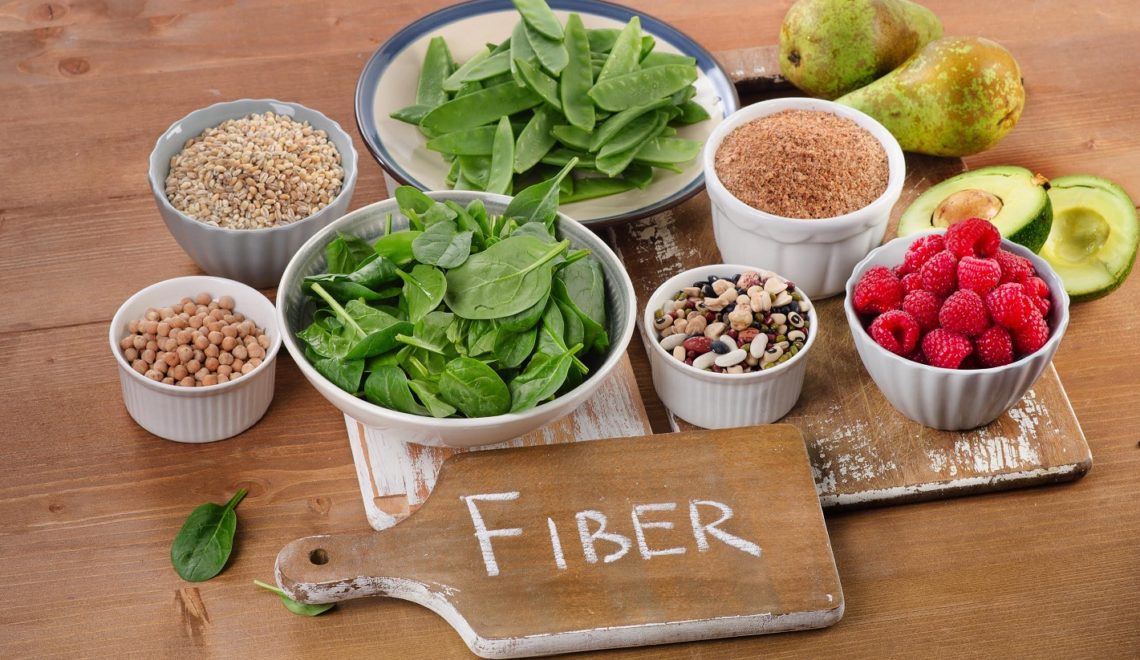
Just adding fiber to your diet isn’t going to make you thinner, but fiber is an important component to a healthy diet. You’ve probably heard that fiber is good for you, but do you know why? According to Mayo Clinic, fiber helps reduce the risk of heart disease and diabetes, prevents constipation, and helps in maintaining a healthy body weight.
Dietary fiber is the part of a plant that the body is unable to digest or absorb. It is a carbohydrate that can’t be broken down by the body. Instead, the roughage passes through the system, aiding in digestion and clearing out the system.
Soluble vs Insoluble
There are two types of fibers – soluble and insoluble. Soluble fiber dissolves in water and is found in apples, citrus fruits, carrots, peas, beans, oats, barley, and other plant based foods. Insoluble fiber is the kind that moves food through your digestive tract and helps with constipation. Whole grains, nuts, beans, and vegetables like cauliflower, potatoes, and green beans contain this type of fiber.

Sourced from the Mayo Clinic. Click here for more fiber-rich foods.
Since foods that are high in soluble fiber include whole grains, legumes, vegetables, and fruits, eating a diet naturally high in fiber is beneficial to your overall health and wellness.
Why you Need Fiber
Here are five main reasons to consume a diet high in fiber:
- Aids bowel movements.
- Helps maintain health of your digestive tract.
- Lowers cholesterol levels.
- Controls blood sugar levels.
- Helps maintain a health weight.
The Institute of Medicine recommends men should eat 30-38 grams fiber everyday (depending on their age) and women should eat between 21-25 grams. Kuli Kuli Pure Vegetable Moringa Powder is a great source of fiber. Moringa contains thirty percent fiber and two servings a day will provide ten percent of your recommended daily dose.







